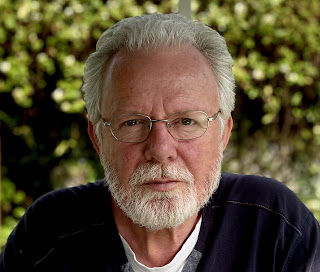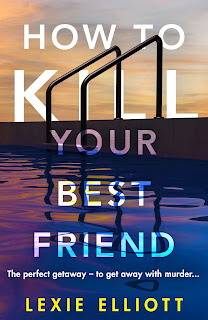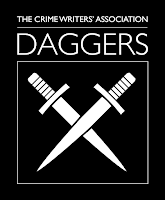 |
| ©Charlotte Carter |
Introduction
Charlotte Carter is the author of the jazz based trilogy novels featuring Nanette Hayes a young Black American jazz musician street busker. A former editor and teacher. The series was originally published in the 1990s and has recently been republished by Baskerville Publishing.
Ayo:- When I first read your Nanette Hayes series one of the things that drew me to the series aside from the fact that your love of jazz comes through on every single page is how spunky and sassy and sexually liberated Nanette is. Is there any part of you in Nanette and if so was this intentional?
Charlotte:- Spunk, sass, sexually liberated. I wish. Maybe the best answer is that my innate shrinking violet was always dueling with a bolder, more courageous persona, and to my surprise, sometimes the bold one won out over Miss Timid. Kind of depends on what’s at stake, I guess.
Of course there’s a bit of yourself in nearly every character. It occurs to me that one of the plusses of a first person narrative is that if you so choose, you can present yourself as a better you. Smarter, funnier, prettier, cooler, whatever.
Ayo:- When the series was first published it was like a fresh of breath air and Nanette was a very unusual character. A strong black female. This impression has continued with how she has been received since the books have been re-issued. Were you surprised about this especially since she appears to be the head of the curve when it comes to dealing with social issues?
Charlotte:- It’s interesting how many times this thing about Nanette being “ahead of the curve” in dealing with social/racial issues has come up. “Strong black female” on the dust jacket is almost a yawn these days. I had no agenda, certainly I had no intention to use Nan as a way to preach or teach. In fact, perhaps people looked at her as a breath of fresh air because she isn’t out to sway opinion or shout the house down about this or that issue--but her take on race, colour, power dynamics, sexism, and so on, is still clear.
Ayo:- It is evident that you have a great love of jazz, jazz history and film noir. Where did this come from?
Charlotte:- You know how you hear music that’s strange to your ears, you don’t know who’s playing or singing but you know you need to hear/learn more about it. A lot of the music I love came at me when I was young, and there were endless opportunities to learn more. I was living in a black community, and in a large multigenerational household, where some kind of music was playing all the time. So, one of my relatives was friendly with a guy who worked at a blues club, my mother and her girlhood friend were semiprofessional performers when they were young, my uncle with the drug problem was a Charlie Parker fanatic, an eighth grade teacher would try to instill black pride in us by playing Leontyne Price or some indigenous Ghanaian music, and so on. I guess once in a while I’d hear something and think, Nah, not feeling that, tune it out--but most of the time I could just go with it.
As for the film stuff, having a mother who didn’t make me go to bed at any particular time had a lot to do with how my interest in movies developed. It is amazing how many films you could see after prime time—and the variety was amazing. I’m talking about the early 60s. I’d see foreign movies dubbed into English, talk shows that originated in New York [guests from Richard Pryor to Oscar Levant to Lenny Bruce to Gwen Verdon; I even saw Jack Kerouac on tv], and an endless parade of noir films—a treasure trove. Before long I was taking note of the cinematographers and who wrote the scores and what novel the movie was taken from. The world view that life could be dark and short and often brutal was not a hard sell for me. There was a hell of a lot of grim stuff going on around me. To be honest, I’ve gotten way more out of living than I ever thought I would.
Ayo:- Is there anything you would have changed if you could since you initially wrote the books?
Charlotte:- Yeah. They’d be better. And I wouldn’t have stayed so silent. I more or less turned away from trying to write, which meant I blew the chance to be better.
 |
©Charlotte Carter |
Charlotte:- Better for people to listen to anything they really like. I played Talking Heads the other day, to get myself up and moving. I play Coltrane a lot. But I haven’t been diligent about keeping up with newer artists. I’m pledging that when Covid is behind us [ha ha], I will start going out again [if there are any venues left] to hear some of the good musicians around today. There are probably a hundred of them just on this side of town.
Ayo:- How pleased were you when Baskerville decided to re-issue the Nanette Hayes trilogy?
Charlotte:- Very pleased. That came out of the blue. Can’t rewrite them at this stage, but I took the opportunity to do some minor surgery on the books, taking out stuff that was a bit over the top, adding a scene or two to each of the books. I haven’t done much writing the last ten years. Collaborated with my husband in the early 2000s on a film treatment, but we weren’t successful. Wow, was he prescient—he tried like hell for a good 15 years to sell this dystopic novel we were writing together, about the overturning of Roe v Wade and the criminalization of abortion in the States. They all laughed ….
Ayo:- Rhode Island Red is my favourite of the trilogy partly because it sems to be an ode to Dashiell Hammett and The Maltese Falcon which is one of my all time favourite crime novels and also because it is was my introduction to such a wonderful series. Was this intentional as there is a missing saxophone at the heart of the story?
Charlotte:- Yes. That, and many other crime things where the cast of characters are on a kind of quest for something elusive, something or someone. It’s enough of a recognized trope that it didn’t feel like stealing. The search almost never ends well.
Ayo:- Have we seen the end of this series?
Charlotte:- To be brief, I don’t know. A couple of plots are bubbling, but I genuinely don’t know if anything will come of them.
Ayo:- What are you working on at the moment?
Charlotte:- A novel, due out next year. It’s not a Nanette, it’s full of grief and death but it’s not a murder mystery, and it is set in both the past and the present, often at the same time; it has a paranormal edge; almost a druggy edge; it’s… what?... inescapably erotic; and in this case, those racial and societal issues indeed are like a cloud overlaying the entire book.
My post about the series can be read here. There is also a Q & A with Charlotte Carter at Crime Time which can be read here.

















